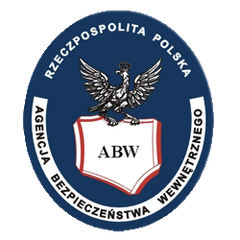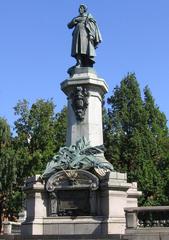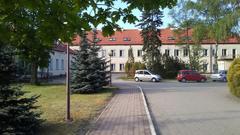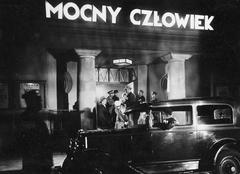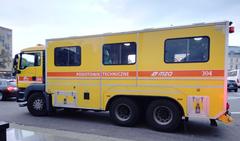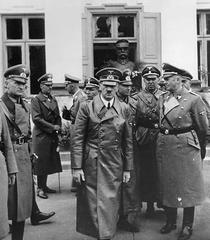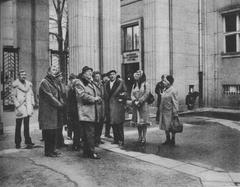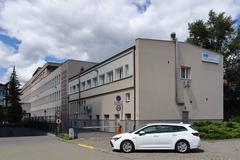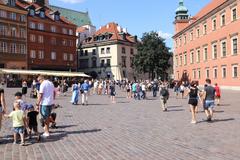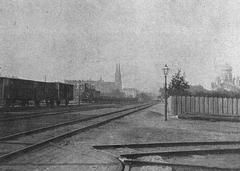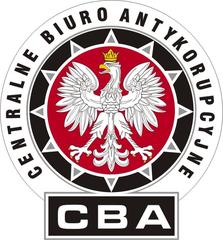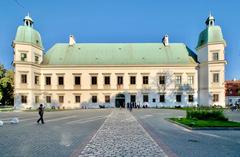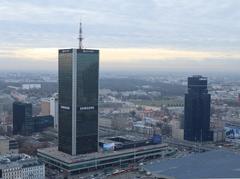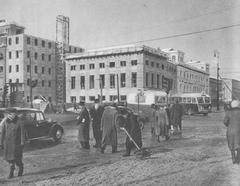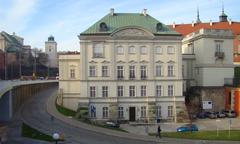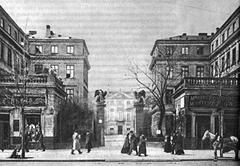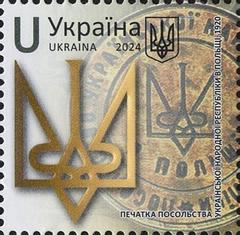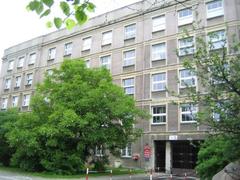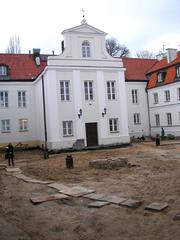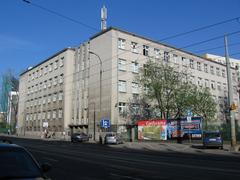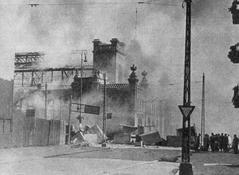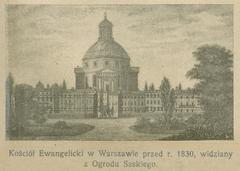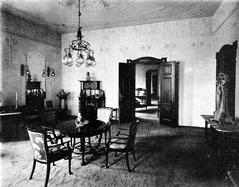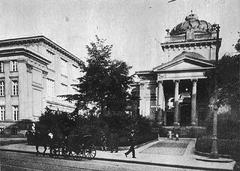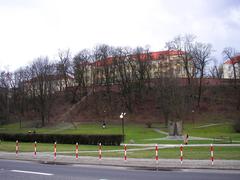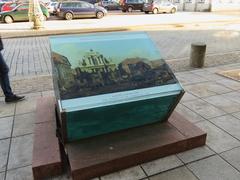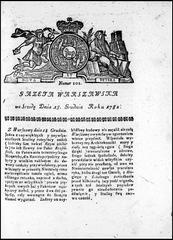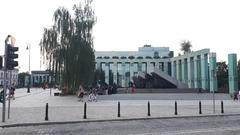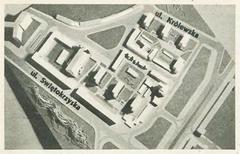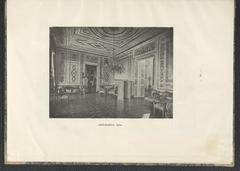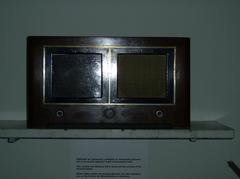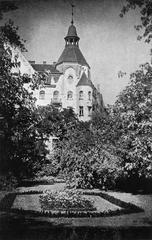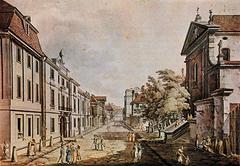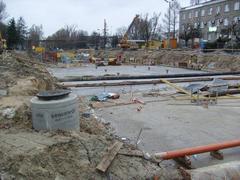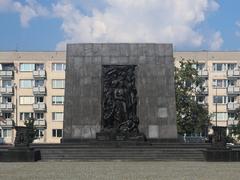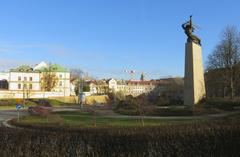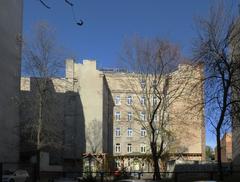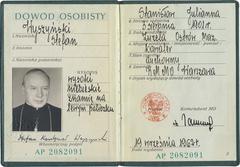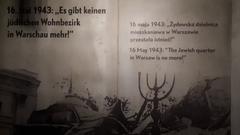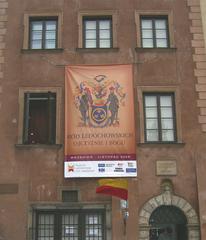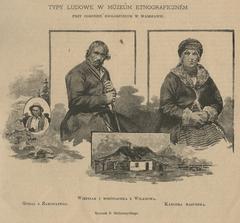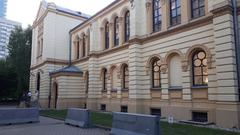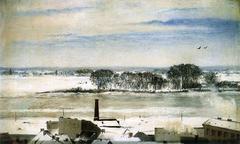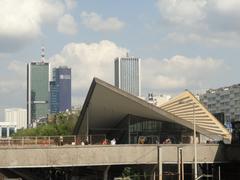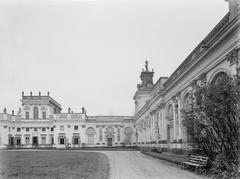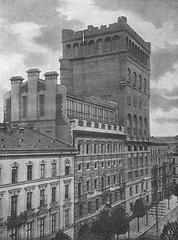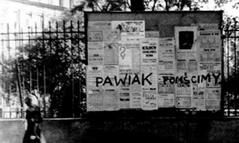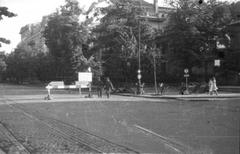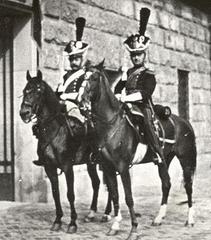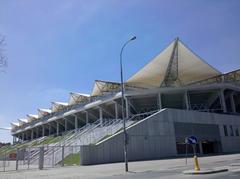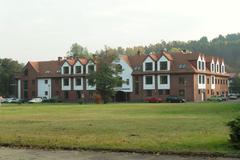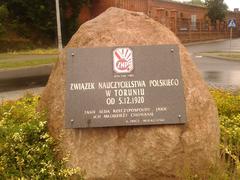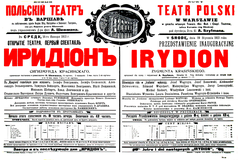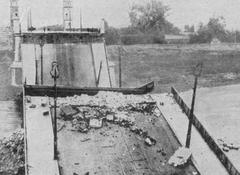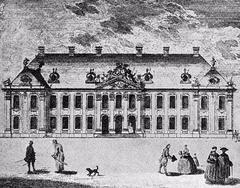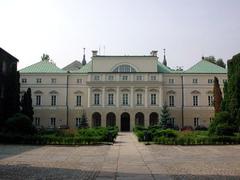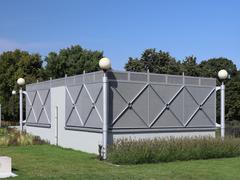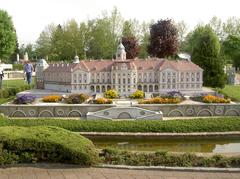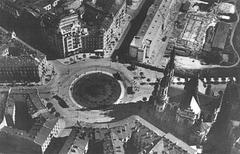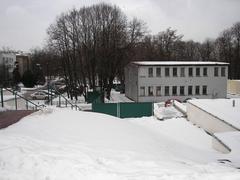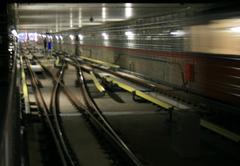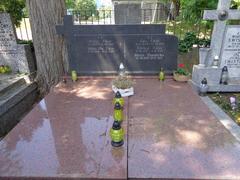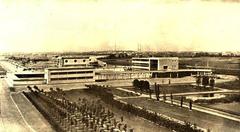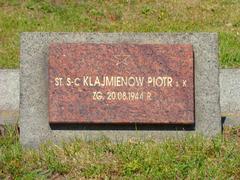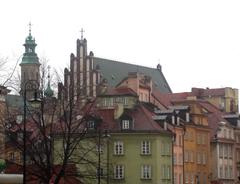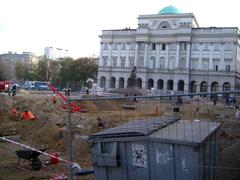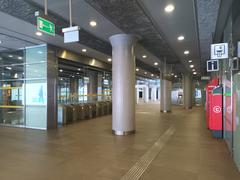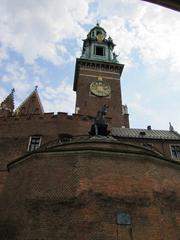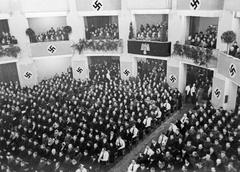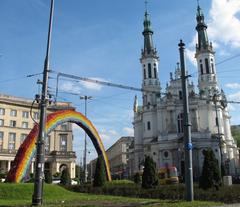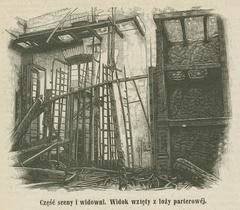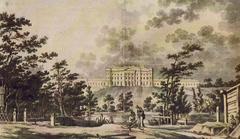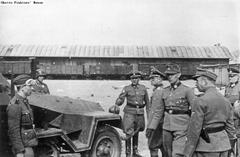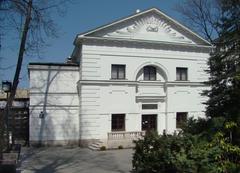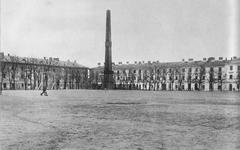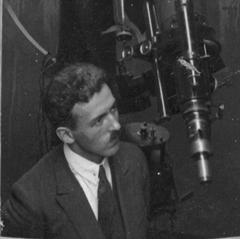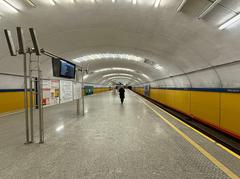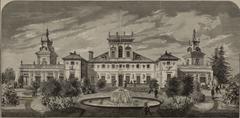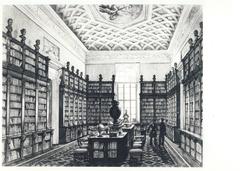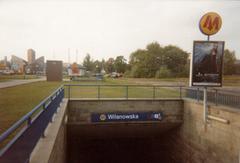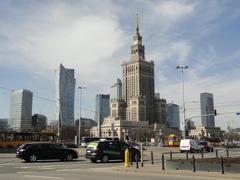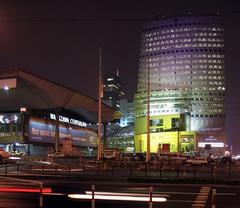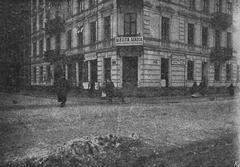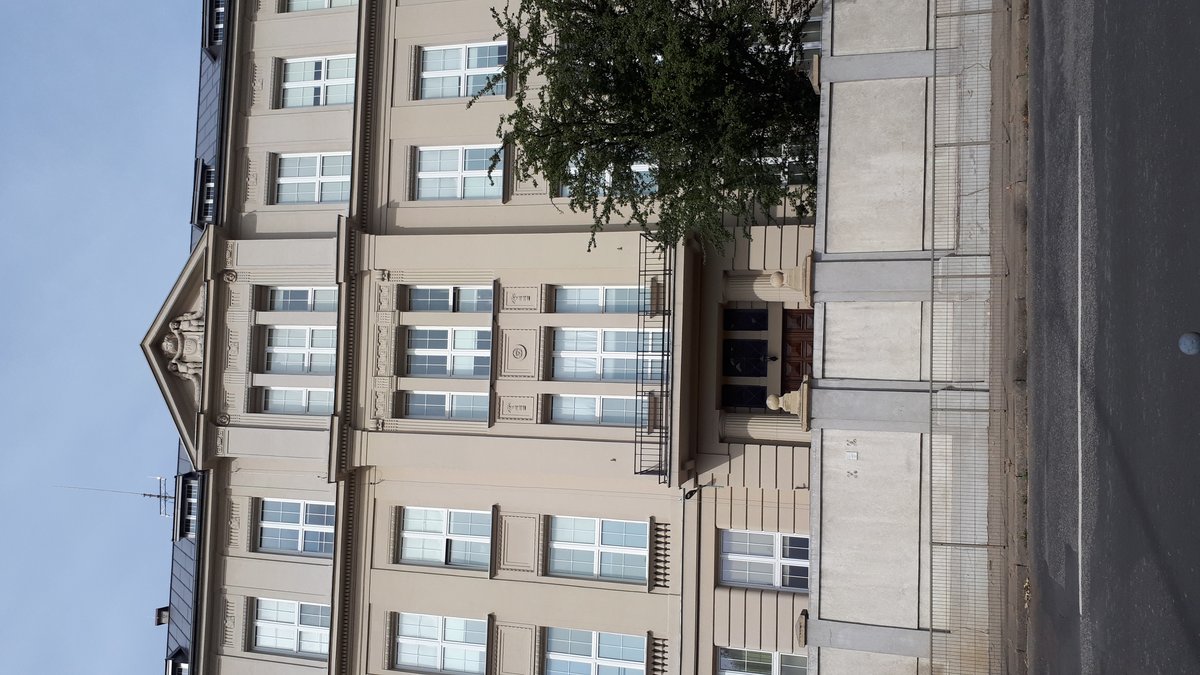
Visiting the Internal Security Agency Warsaw, Poland: Guide, Tickets, Hours, and Tips
Date: 14/06/2025
Introduction: Poland’s Internal Security Agency in Context
Poland’s Internal Security Agency (Agencja Bezpieczeństwa Wewnętrznego, ABW) stands at the forefront of the nation’s modern defense, countering threats like terrorism, espionage, and cybercrime. Established in 2002 as part of post-communist reforms, the ABW reflects Poland’s ongoing commitment to national security within a democratic, accountable framework. While its Warsaw headquarters remain inaccessible to the public due to security protocols, the impact and legacy of Polish intelligence services are deeply rooted in the country’s turbulent history and strategic geopolitical role in Europe.
This guide is designed for visitors and history enthusiasts eager to explore Poland’s intelligence heritage. It covers the evolution of national security services from the Polish–Lithuanian Commonwealth through World War II, the communist era, and contemporary democratic times. Warsaw, the seat of government and intelligence operations, is home to a variety of museums and historical sites that vividly narrate stories of espionage, resistance, and security. Key destinations include the Museum of the Polish Army, the Warsaw Uprising Museum, and the Institute of National Remembrance, offering immersive exhibits on military and intelligence history.
Although the ABW headquarters itself is off-limits, the surrounding Mokotów district features several significant historical sites, such as the Mokotów Prison and Pole Mokotowskie Park. This guide also provides practical information on transportation, accessibility, and tips for visiting intelligence-related landmarks in Warsaw, ensuring visitors can make the most of their exploration of Poland’s intelligence legacy.
For further details and official information, consult the ABW official website, the Warsaw Uprising Museum, and the Institute of National Remembrance.
Table of Contents
- Introduction: Poland’s Intelligence Heritage
- Historical Overview: From Early Roots to Modern Reforms
- The Internal Security Agency (ABW): Mission and Structure
- Operational Activities and Oversight
- Visiting Intelligence-Related Sites in Warsaw
- ABW Headquarters: Visitor Information
- Travel Tips and FAQs
- Final Recommendations and References
Poland’s Intelligence Heritage: A Brief Overview
Poland’s intelligence and security services have evolved over centuries, shaped by geopolitical upheavals and the nation’s enduring quest for sovereignty. While not traditional tourist attractions, these institutions offer deep insights for visitors interested in espionage, military history, and national defense.
Early Roots: Polish–Lithuanian Commonwealth
Intelligence traditions in Poland date back to the Polish–Lithuanian Commonwealth (1569–1795), when monarchs and military leaders relied on networks of informants and diplomats to gather vital information on neighboring powers.
Interwar Period: Modernization
With Poland’s independence in 1918, the intelligence services were formalized via Section II of the Polish Army’s General Staff, responsible for military and civilian intelligence, counterintelligence, and cryptography—pivotal during the Polish–Soviet War.
World War II: Espionage and Resistance
During WWII, Polish intelligence made significant contributions to the Allied cause, including efforts to break the German Enigma code. The government-in-exile and the Home Army orchestrated extensive intelligence operations both at home and abroad.
Communist Era: Soviet Influence
After WWII, Poland’s security apparatus was reorganized under Soviet supervision. The Ministry of Public Security (UB) and subsequent agencies became infamous for political repression and surveillance.
Post-1989: Democratic Reforms
The collapse of communism led to sweeping reforms. The State Protection Office (UOP) replaced earlier organizations, introducing civilian oversight and modern counterintelligence. In 2002, the Internal Security Agency (ABW) was established as the central authority for domestic intelligence and security.
The Internal Security Agency (ABW): Mission, Structure, and Operations
Mission and Responsibilities
The ABW is Poland’s principal domestic intelligence agency, tasked with protecting the nation from terrorism, espionage, cyberattacks, organized crime, and threats to constitutional order. It operates under the authority of the Prime Minister and is subject to parliamentary and judicial oversight, ensuring a balance between state security and civil liberties.
Key functions include:
- Counterintelligence: Identifying and neutralizing foreign intelligence operations.
- Counterterrorism: Preventing and responding to terrorist threats.
- Protection of State Secrets: Safeguarding classified information.
- Cybersecurity: Monitoring and defending against cyberattacks on critical infrastructure.
- Economic Security: Investigating crimes that impact national economic interests.
- Upholding Constitutional Order: Monitoring activities that threaten democratic institutions.
Legal foundations are set by the Act on the Internal Security Agency and the Intelligence Agency (2002).
Organizational Structure
The ABW is headquartered in Warsaw and has regional offices in major Polish cities, including Kraków, Gdańsk, Wrocław, Poznań, and Łódź (ABW Official Website). Its workforce comprises several thousand officers and specialists, focusing on fields such as counterintelligence, counterterrorism, cybersecurity, economic security, and legal oversight.
Leadership includes the Head of ABW (appointed by the Prime Minister), supported by deputies who oversee key operational domains. Recruitment is highly selective, emphasizing integrity and technical expertise.
Operational Activities
- Counterintelligence & Counterterrorism: The ABW conducts surveillance, infiltration, and threat assessments, frequently collaborating with NATO, the European Union, and other allied agencies (NATO Overview).
- Cybersecurity: The agency maintains rapid response teams to monitor, contain, and investigate cyber incidents, and promotes public awareness through partnerships (Polish Cybersecurity Strategy).
- Economic and Anti-Corruption Activities: The ABW targets financial crime, corruption, and threats to economic stability, working alongside the Central Anti-Corruption Bureau (CBA) and prosecutors.
- Crisis Management: During national emergencies, the ABW coordinates with the Government Centre for Security (RCB) and other agencies.
Oversight and International Cooperation
The ABW is governed by strict legal frameworks, with parliamentary and judicial supervision to safeguard rights and maintain accountability. International cooperation is integral, particularly with EU, NATO, and Visegrád Group partners (EUROPOL).
For further details, visit the ABW official website.
Visiting Intelligence-Related Sites in Warsaw
While direct access to the ABW headquarters is not permitted, Warsaw offers several museums and sites that illuminate the history of Polish intelligence:
Museum of the Polish Army (Muzeum Wojska Polskiego)
- Address: Aleje Jerozolimskie 3, Warsaw
- Hours: Tue–Sun, 10:00–18:00; closed Mon
- Tickets: ~20 PLN (discounts on Wed)
- Features: Extensive displays on military intelligence, artifacts, and documents.
- Museum Website
Warsaw Uprising Museum
- Address: Grzybowska 79, Warsaw
- Hours: Daily 10:00–18:00; closed Tue
- Tickets: ~25 PLN; book online for convenience (tickets)
- Features: Interactive exhibits on the 1944 uprising and clandestine operations.
Institute of National Remembrance (IPN)
- Address: Janusza Kurtyki 1, Warsaw
- Hours & Exhibits: Check IPN’s website
- Tickets: Often free or nominal fee
- Features: Archives and displays on communist-era security agencies.
Palace of Culture and Science
- Address: Plac Defilad 1, Warsaw
- Hours: Daily 10:00–20:00
- Tickets: ~20 PLN for observation deck
- Features: Symbol of Soviet-era surveillance; panoramic city views.
- Palace Website
ABW Headquarters: Location, Accessibility, and Surroundings
Location and Architectural Context
The ABW headquarters is located at ul. Rakowiecka 2A, 00-993 Warszawa, in the Mokotów district (ABW official site; Military History Fandom). The neighborhood features a blend of residential, governmental, and institutional buildings, with the ABW facility situated alongside the Ministry of Interior and Administration and the historic Mokotów Prison.
Accessibility and Public Access
- Public Access: The ABW headquarters is not open to the public; there are no tours, tickets, or visiting hours (ABW official site).
- Security: The area is heavily secured; unauthorized entry or photography is strictly forbidden.
- Directions: The site is accessible via tram and bus along Rakowiecka Street. The nearest metro station, Pole Mokotowskie, is about a 10–15 minute walk away. Limited street parking is available.
Nearby Historical Sites
- Mokotów Prison: Notable for its significance during World War II and the communist era.
- Pole Mokotowskie Park: A nearby green space for relaxation.
- Ministry of Interior and Administration: Adjacent government building.
For images and further context:
Tips for Visitors and Security Protocols
- Do not attempt to enter the ABW headquarters or take unauthorized photos.
- Use public transportation due to limited parking.
- Official visits require advance authorization and security screening.
- Respect posted signs and security instructions.
Travel Tips and Frequently Asked Questions
Q: Can I visit the ABW headquarters?
A: No, access is strictly limited to authorized personnel.
Q: Where can I learn about Polish intelligence history in Warsaw?
A: Visit the Museum of the Polish Army, the Warsaw Uprising Museum, and the Institute of National Remembrance.
Q: Are there themed tours on espionage history?
A: Some private operators offer WWII and Cold War-themed tours.
Q: Are these sites wheelchair accessible?
A: All major museums mentioned are wheelchair accessible.
Q: How do I reach the Mokotów district?
A: Use trams, buses, or the metro (Pole Mokotowskie station).
Final Recommendations and Summary
Exploring Warsaw’s intelligence and security heritage offers a unique perspective on Poland’s resilience and strategic role in Europe. While the ABW headquarters remains closed to the public, the city’s wealth of museums and historical landmarks provide engaging narratives about espionage, resistance, and reform. By visiting these sites, travelers gain both historical knowledge and a deeper appreciation for the nation’s ongoing commitment to security and democratic values.
To enhance your visit, utilize resources like the Audiala app for curated tours and up-to-date information.
References and Official Sources
- ABW Official Website
- ABW Visitor Information
- Warsaw Uprising Museum
- Institute of National Remembrance
- Museum of the Polish Army
- Palace of Culture and Science
- Warsaw Tourism Board
- Military History Fandom
- Grey Dynamics
- Polish Cybersecurity Strategy
- EUROPOL
- NATO Overview
For more travel tips and curated history tours, download the Audiala app and follow our social media channels for updates!

